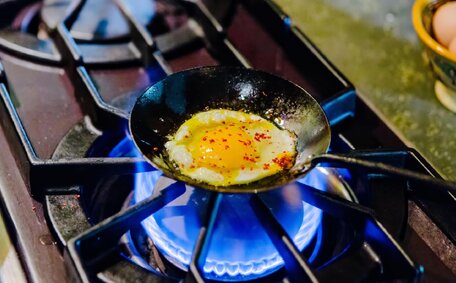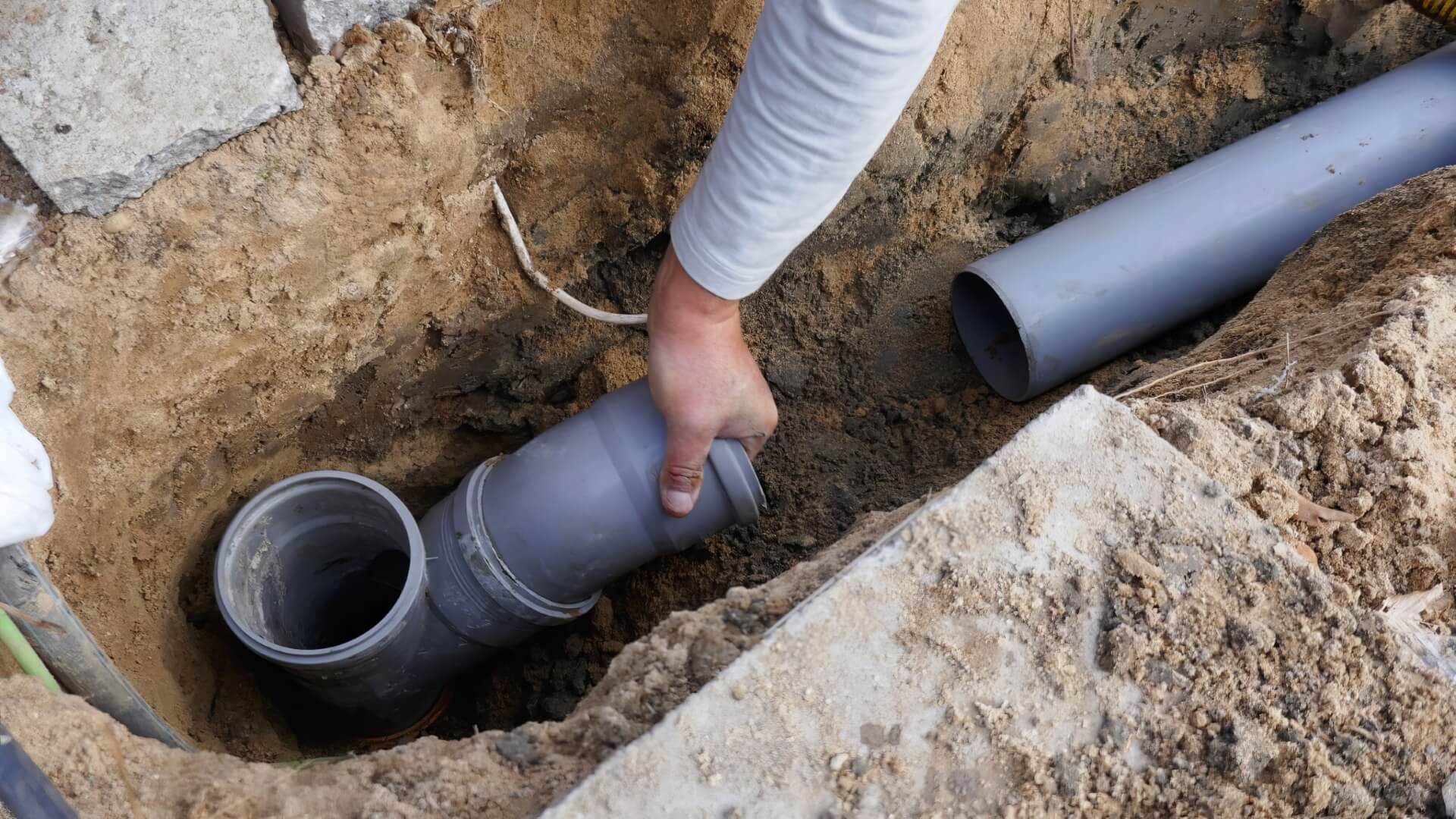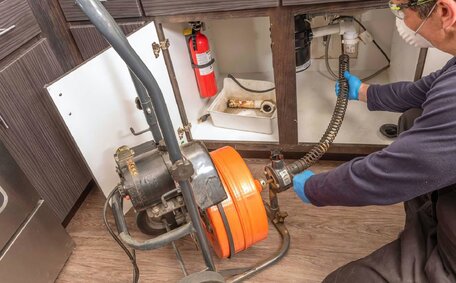Homeowners commonly encounter the frustration of a blocked drain. Unfortunately, misconceptions regarding blocked drain management and blockage clearing are widespread. Misconceptions about blocked drains, ranging from dubious DIY fixes to old wives’ tales, are abundant.
It’s crucial to debunk the most common myths about the supposed effectiveness of harmful quick fixes in plumbing. When it comes to unproven home remedies for your garbage disposal, they often exacerbate the issue - can lead to even more severe blockages as well as possible damage to your pipes. A grasp on the function of garbage disposals and plumbing, combined with factual information on blocked drains, leads to effective prevention and remediation.
This article debunks common myths regarding the management of blocked drains. Equipped with accurate plumbing knowledge, you can counter myths about blocked sinks, prevent clogs effectively and avoid frequent errors.
We offer expert insights into some of the most challenging aspects: using chemical drain cleaners, flushing inappropriate items down your toilet, and attempting to clear blockages without turning off the water.
Myth 1: Chemical drain cleaners effectively unclog drains
A prevalent misconception is that harsh chemical drain cleaner solutions can clear blockages when poured down clogged drains. Though they may offer a temporary solution for minor cases, common liquid drain cleaners are ineffective against serious obstructions and may contain harsh chemicals like lye or sulfuric acid. Using them repeatedly can easily damage your pipes gradually.
Certain drain cleaning products can cause chemical reactions that release toxic gases or become unstable and potentially explosive. With drain blockages, the complication is usually further down the pipe system anyway, inaccessible to the limited capability of cleaners.
Professional hydrojetting, which safely blasts away blockages, is the solution for severely clogged drains resistant to plungers or metal snakes. Preventatively, regularly pouring grease, fats, or solids down any drain invariably causes build-up and obstructions over time. Another protective measure is installing mesh drain catchers, which safeguard the pipes transporting your wastewater.
Myth 2: It’s okay to pour grease down the drain
Contrary to what many people believe, that fats, oils, and grease can all be flushed down the kitchen sink, this action leads to severe plumbing issues due to stubborn blockages. Swift intervention is essential as grease cools, to prevent it from solidifying into lumps that stubbornly accumulate on pipe walls. Over time, thick layers can clog up, restrict water flow, and you certainly don’t want your drains blocked entirely.
Grease disposal also raises environmental concerns. Fats, oils and grease (FOGs) washed down drains enter waterways, reducing oxygen levels and harming aquatic life. Sydney Water estimates over 36% of its sewer blockages involve grease before they turn into hardened obstructions.
Collect grease in containers for appropriate disposal instead of pouring it down the sink. Most councils offer recycling programmes for household fats and oils.
Mixing small amounts of liquid oils with soap can assist in breaking down grease, facilitated by hot water, before it enters the drainage system. But for existing clogs, before blockages can travel further down your drain, call a professional – devices like hydrojetters can safely clean your blocked drains.
Myth 3: Flushable wipes won’t clog pipes
Despite their 'flushable’ label, wet wipes do not disintegrate like toilet paper and can lead to blocked pipes. Flushed wet wipes can ensnare on pipe joint imperfections and merge with fats, leading to severe pipe blockages.
Even products labelled as 'safe for flushing’ are often designed to persist through a single flush, not to fully disintegrate, posing some most significant risks to plumbing systems. Raw sewage pumps can shred toilet paper, but not tougher flushable wipes, which can accumulate and impact your toilet tank. These eventually amass, which can cause serious flow restrictions - especially around bends where solids readily snag.
Sewage authorities identify flushable wipes as comprising over 93% of material screened out to prevent waste network blockages. Unlike toilet paper, flushable wipes take monumentally longer to disintegrate naturally - lingering intact halfway to the treatment plant. Attempting dissolution with additives comes at a huge financial and environmental cost too.
While the odd wipe flushed down toilet seems harmless, when multiplied across suburbs, consequences for the pipes only stack up. Inform guests to only flush toilet paper and direct your garbage items like wet wipes towards appropriate bins. For existing blockages, akin to removing a substance that could create a brick toilet tank effect, call in a professional plumber to hydrojet impacted drains clear of wipes and waste build-up.
Myth 4: Running hot water prevents grease buildup
Running hot water down your kitchen drain is ineffective at preventing grease buildup or ensuring unwanted substances are flushed from your pipes. The temporary melting of grease by hot water is futile, as it resolidifies and clings to pipes upon cooling, leading to clogs.
Hot water alone lacks the scouring action needed to effectively flush oils and grease through pipes. Even immediately after pouring boiling water, remnants quickly congeal again, causing blockages that drains your system’s efficiency in the opposite direction before reaching your main sewer system. This recurring buildup inevitably leads to major plumbing problems.
For existing grease-related issues, seek professional plumbers who can safely unclog and clean your system.
Before discarding, allow cooked fats, oils, and grease to fully cool and solidify, then scrape into a container rather than risking a clog in your toilet bowl.
Myth 5: Minor leaks are harmless
Though easy to dismiss, even minor leaks can evolve into serious issues such as clogged sinks if neglected. A little trickle, which can save money, from your water heater or pipes may seem innocuous, but it can lead to how much water is being wasted per day, spiking your water bill and potentially causing damage to your home.
Plus, small leaks often tend to worsen gradually. Continuous dripping may corrode pipes and escalate into major flooding or extensive water leakage. Ignored water leak situations also promote water damage and can ruin your walls or cabinets.
At the initial hint of a leak, even sporadic drips, inspect your plumbing fixtures thoroughly and take necessary action. Once detected, it’s best to have a licensed professional promptly address minor leaks to prevent them from developing into burst pipes and extensive property damage.
Implementing fats, oils, and grease disposal practices is another wise defensive tactic. Simple adjustments like taking shorter showers, not overloading your kitchen sink, running full loads in your washing machine, and immediately fixing known drips drastically cuts wastage, benefitting both your home’s plumbing system and the environment.
When to call a professional plumber
For complex pipe or drain issues that could severely damage your plumbing, consulting a professional plumber is recommended. Blockages involving tree roots infiltrating your sewer line, extensive buildup beyond your drain access point, or complete pipe collapses require specialised equipment and expertise.
A licensed plumbing professional equipped with advanced tools like electromechanical drain augers and hydrojetters can swiftly and safely clear blockages. They can also conduct pipe inspections using sewer cameras to pinpoint troublesome areas.
For tricky tasks like dismantling pipes or fitting replacements, a qualified plumber has the technical know-how to ensure installations meet strict industry standards and building codes. Attempting extensive repairs without proper training can go beyond risks, potentially further destroying pipes or adding flaws that enable future leakage.
Beyond individual fixture repairs, pros can accurately diagnose problems within the entire plumbing system like water heaters or toilets to prevent deterioration through quick repairs. They have a vast reserve of experience assessing issues accurately and running the diagnostics through your plumbing system rapidly. Relying on DIY guessing wastes time and resources.
Engaging professional help does more than just eliminate personal safety hazards - it also protects your drainage system. Plumbers are fully versed in necessary precautions when handling sewage flows or leakages. They ensure appropriate protective and containment equipment use too.
Contact your local, certified plumber for dependable home plumbing solutions at 1300 349 338 or via email at [email protected].
How to prevent blocked drains
Blocked drains, being inconvenient and potentially harmful, necessitate preventing the disposal of unsuitable materials. Avoid reliance on quick fixes; instead, adopt simple and effective plumbing habits to prevent the development of obstructions in your home’s drains.
- Install mesh drain screens over sinks and baths to trap hair, fats oils grease and debris before getting into your pipes
- Pour cooled fats oils and other cooking residuals into a heatproof container and dispose of it in the bin - never risk tipping too much down sinks
- Only flush pee, poo and toilet paper. Throw even “flushable” wipes and sanitary items in the bin
- Compost food scraps or bin them. Use sink strainers to ensure lemon peels can be caught, prevent cat litter down your sink, and control other particle runoff too
- Limit use of harsh chemical cleaners, considering milder, natural solutions like a baking soda vinegar mix that are less corrosive to pipes over time
- Regularly flush pipes with ice cubes and very hot then cold water to clear grease
- Have a professional hydrojetting every year or two to scour pipes clean
If your drains do become blocked, Do not attempt to use a plunger on your drain while the water is still running. Always turn off water first. For serious jams involving tree roots or extensive buildup, call Gold Coast’s trusted local plumbing team on 1300 349 338 for guaranteed drain clearing using advanced equipment.
Conclusion
In closing, it’s clear that many prevailing myths around blocked drains are simply unfounded. Relying on DIY remedies without proper plumbing knowledge can exacerbate issues and highlights the importance of understanding proper maintenance. Likewise, not addressing minor leaks or flushing inappropriate items, though they may seem trivial, can trigger blockages, where it would be prudent to take preemptive measures to fix plumbing issues before they become costly headaches.
Safe, effective drain care means following best practises like proper grease disposal, using drain catchers, limiting chemical cleaner use, and promptly addressing even small leaks. For existing or complex blockages, tree root infiltrations, and pipe repairs, a professional plumber has the equipment and expertise to resolve problems and flush out your plumbing issues thoroughly and compliantly.
Armed with the facts about plumbing misconceptions, you can adopt preventative habits to ensure your drains remain clear and undamaged. If you face any drain or plumbing emergency, Drummoyne Plumbing’s fully certified local team is ready 24/7 to diagnose issues accurately and guarantee optimal solutions. Contact us on 1300 349 338 or at [email protected].






